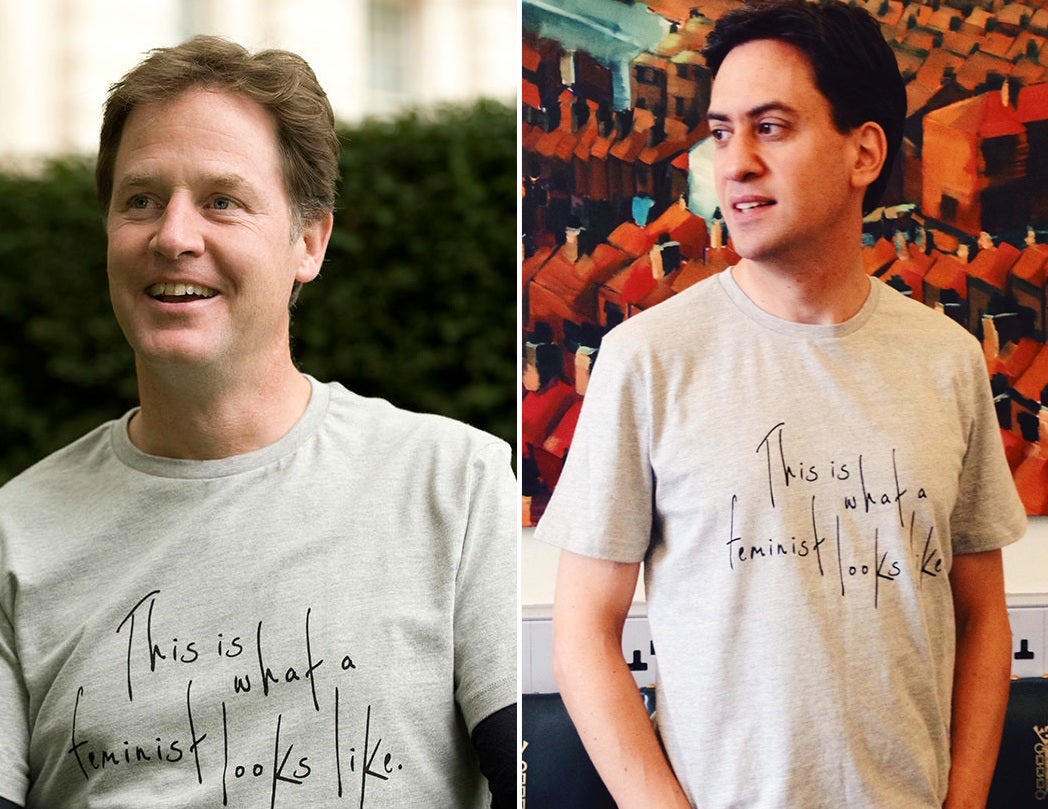Feminism is under attack — Elle wants to turn it into a t-shirt, and TIME magazine wants the word gone
The complexity of feminism is not sexy enough for Hollywood or the many other brands now trying to sell it

Your support helps us to tell the story
From reproductive rights to climate change to Big Tech, The Independent is on the ground when the story is developing. Whether it's investigating the financials of Elon Musk's pro-Trump PAC or producing our latest documentary, 'The A Word', which shines a light on the American women fighting for reproductive rights, we know how important it is to parse out the facts from the messaging.
At such a critical moment in US history, we need reporters on the ground. Your donation allows us to keep sending journalists to speak to both sides of the story.
The Independent is trusted by Americans across the entire political spectrum. And unlike many other quality news outlets, we choose not to lock Americans out of our reporting and analysis with paywalls. We believe quality journalism should be available to everyone, paid for by those who can afford it.
Your support makes all the difference.Time magazine completely lost the plot by reducing a powerful, meaningful movement into a buzzword, but they did make a valid point in criticising the sudden wave of celebrity feminism. Not just for problematically pandering to the whims of men in shaping the progression of the feminist movement.
Oh no, celebrity feminism has other problems. After Emma Watson’s #HeForShe campaign speech to the United Nations, she was heralded as Elle magazine’s “fresh face of feminism” for its December “feminist issue”, in a joint venture with the Fawcett Society. Without dwelling on the already problematic “92 brilliant products every woman should use” by-line on the cover (seriously, no one on the Elle editorial board picked up on the irony?), there are more sinister undertones to this rebranding of feminism.
Elle has designed a collection of garments declaring ‘This is what a feminist looks like’, with the T-shirts selling at £45, the jumpers at £85 and being sported by the likes of Ed Miliband and Harriet Harman. All proceeds will be channelled to The Fawcett Society, who are active supporters of EndDemand, a campaign which calls upon the government to criminalise the purchase of sex, while decriminalising its sale. The Society marginalises a whole branch of the feminist movement made up of those who oppose the Nordic Model for fear of sex workers being driven into unsafe underground working conditions. By aligning itself with The Fawcett Society’s definition of female liberation, Elle is indirectly endorsing a position that rejects the intersectionality of oppressions — the concept of overlapping racial, gender, and class prejudices and oppressions.
This flows into a deeper capitalist exploitation of feminism that has gained momentum with faces like Emma Watson. The marketing of these shirts, capitalising on the trend of feminism as a commodity, demonstrates the questionable interweaving of women’s liberation movements with individualistic neo-liberal narratives. A political movement built upon solidarity becomes fodder for profit allocation. Ironically, this means that the women who need feminism the most probably won’t even be able to afford these overpriced shirts and jumpers, reinforcing the image of mainstream feminism as open only to those who have the capital to gain access to it, again usually white, wealthy cis women.
Emma Watson’s failure to mention other forms of oppression beyond her own, and the failure of Elle and The Fawcett Society to recognise their exclusionary actions, is the epitome of the neo-liberal model, which reinforces the idea that hard work begets power and progress. There is the assumption of a meritocracy that doesn’t exist. It doesn’t recognise those left behind by the model.
Mainstream feminist discourse focuses on white professional women’s access to work and equal pay, as the family was a source of oppression for white middle-class women. However, this doesn’t recognise the different conceptions of family for many women of colour, where the family remains a source of salvation. Sheryl Sandberg’s ‘Lean In’ presents the workplace as a site of liberation for the female 1%, but with women of colour concentrated in some of the lowest paying industries, for them the workplace is an oppressive environment.
Celebrity feminism seen in the #HeForShe gender binary also excludes those that don’t neatly fit into these normative categories. Despite advocating freedom of self-expression beyond gender by declaring that we should “perceive gender on a spectrum not as two opposing sets of ideals”, the very campaign name #HeForShe erases already marginalised individuals, leaving behind those from minority sexual orientations when they should be front and centre of the feminist movement.
But hey, why would Emma Watson or Elle talk about any of this?
Intersectionality is not sexy enough for celebrity feminism. Feminism needs to regain that edge, that audacity to bring to light the unpleasant truths that the movement fails to acknowledge – that is, the oppression of marginalised groups within feminism by white, wealthy, cis feminists.
Celebrity feminism’s catchy slogans and meaningless commitments might seem the way forward, but we need to look beyond the shiny packaging.
Join our commenting forum
Join thought-provoking conversations, follow other Independent readers and see their replies
Comments